Education for the future before us
Explore Differently
Teacher. Desk. Study. Test. Forget. Repeat.
Graduate.
Why is school still like this?
Conventional public and private schools were designed in the 1800s to prepare youth for industrial factory jobs.
The world has changed. Fundamentally, schools have not.
We have a solution.
Athlete Profiles
Westmont Solution
Since 2018 Westmont has been designing and fine tuning its ground-breaking high school program to better prepare students for a rapidly changing present and future.
4 Main Differences to Conventional Public or Private School
Student Led Learning
What is it?
You choose what to learn and when, within boundaries 😉
So?
When you choose what to learn, you’ll find yourself naturally interested. And get this, you’re much more likely to remember what you learn for a long, long time–and often want to dive deeper later.
How?
You make a work plan with your teacher. Then it’s on you. Teachers are now guides, not disciplinarians. Learn differently? This method rocks.
Conventional School
You’re told what to learn and when. Ever been bored or disengaged from a class? How much did you remember two weeks after the test?
Experiential, Integrated Learning
What is it?
You tackle projects instead of classes. Projects are real world and incorporate several curriculum topics. Because that’s how your adult work will look!
So?
When you understand relationships between subjects, you build real knowledge and start to develop wisdom. Inside a project, your knowledge and earned wisdom are much more likely to stick than in a stand alone class.
How?
Each year you’ll get to experience 4 – 8 week project cycles with breaks in between. In year 12 you do one deep dive thesis project lasting 32 weeks! You’re fully supported the entire way through the journey.
Conventional School
You learn in separate classes and mostly from books or exercises. Have you ever wondered what the relevance of a class is to your life or work?
Dispersed vs. Desk Learning
WHAT IS IT?
Getting out into the real world into different locations and environments that make the learning REAL.
SO?
You know that you learn best by doing and in understanding how something is relevant or useful.
Partnered Learning
What is it?
Westmont is partnering with a diversity of organizations on Vancouver Island to provide access and experiences for our High School Students. No one school could ever assemble the options possible with a partnership model.
SO?
Variety is interesting to all humans. Shouldn’t school be the same?
HOW?
In addition to time spent off campus, we’ll bring the world onto our campus through technology. The globe is literally at our fingertips these days.
Conventional School
Learning is 90% done on school grounds.
Key Elements at Westmont High
Strong Academics
Grow in a Loving, Safe Community
Demanding Program
Self-Guided Learning with Structured Support
Explorations Off-Campus
Culturally Diverse
Design a Business, Product or Service
Real Life, Hand-On Experiences
Emphasis on Whole Person Development
Contribute back to the Community
Structured Mentorships w/ External Experts
Domestic and International Travel Opportunities
Exit High School with a Plan

University Guidance
The Westmont educational journey begins on your first day at school, as we seek to prepare you to thrive, dream and find your passions as you look toward potential post secondary opportunities and being equipped for an ever-changing world.
We will guide our students in finding universities and directions that are good matches, and offer individual guidance on:
- Procedures and timelines
- Application expectations
- Identifying and connecting you to volunteer and extracurricular activities needed for successful entry into many universities today
- Help with essay writing
- Help with standardized exam preparation, such as SATs
- Interview preparation and university selection
- Scholarship opportunities and visits
Our advisors will work one-on-one with you starting in Grade 8 helping you to discover, explore and pursue your passions and to create a pathway to post secondary education both nationally and internationally.
STRUCTURED MENTORSHIP
Work Smart AND Hard!
That’s a key formula for success in your life. Smart people who want to accomplish a lot know to seek out mentors and learn from their acquired wisdom and past mistakes. Why tackle life alone?
5 Benefits of Westmont’s New Mentorship Program
1
Get support in finding out what you want to do after high school
2
Learn proven strategies for getting a job
3
Understand yourself better and how to build strong relationships
4
Learn how to mentor someone else that you can help
5
Get ideas and tools for tackling the biggest challenges in your life
